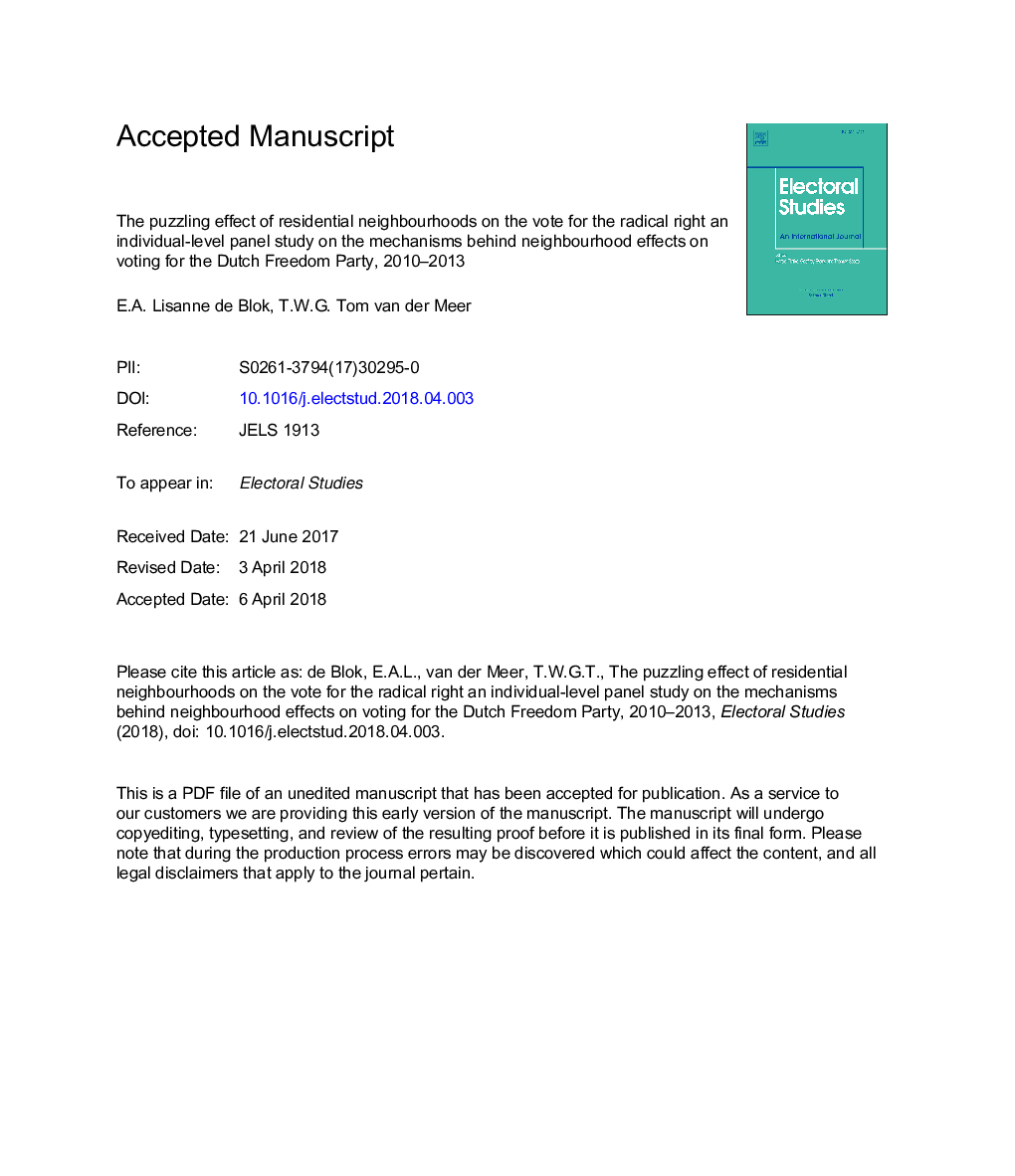| Article ID | Journal | Published Year | Pages | File Type |
|---|---|---|---|---|
| 7463259 | Electoral Studies | 2018 | 37 Pages |
Abstract
Theory predicts that voting behaviour is affected by voters' residential environments, but empirically, results are anything but conclusive. Two key problems cause these mixed outcomes: first, most studies have relied on aggregate level data, risking ecological fallacies and overestimation of contextual effects. Second, the literature has relied almost exclusively on the test of effects rather than mechanisms. As a consequence, the presumed causal mechanisms are theoretically underdeveloped and empirically understudied. This article directly tests the causal mechanisms by which a neighbourhood is thought to affect RRPP voting (contact, threat, neighbourhood experience) using a multilevel approach. We rely on two panel waves of the Netherlands' Life Course Survey (NELLS), enriched with data on the neighbourhood level derived from Statistics Netherlands (CBS), and control for selective residential mobility mechanisms. We find only little evidence for a neighbourhood effect. More interestingly, none of the supposed mechanisms explain this neighbourhood effect.
Keywords
Related Topics
Social Sciences and Humanities
Social Sciences
Geography, Planning and Development
Authors
E.A. Lisanne de Blok, T.W.G. Tom van der Meer,
